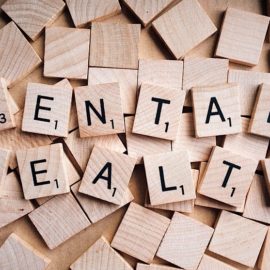

This article is an excerpt from the Shortform book guide to "The Art of Impossible" by Steven Kotler. Shortform has the world's best summaries and analyses of books you should be reading.
Like this article? Sign up for a free trial here .
What are the hormones that make you happy? How do these hormones affect your wellbeing?
Hormones that make you happy, or neurochemicals, dictate your overall sense of wellbeing, including how motivated you feel to complete your goals and which good (or bad) habits you adopt in daily life. The Art of Impossible author, Steven Kotler, says generating all six types of hormones that make you happy is the key to living a more fulfilling life.
Read on to learn the different types of hormones that make you happy and their impact on wellbeing, according to Kotler.
Importance of Hormones That Make You Happy
In brief, your nervous system is made up of billions of neurons and neural pathways that transmit different types of chemical information (i.e. happy hormones) from one neuron to another. Kotler explains that there are six types of hormones that make you happy. These hormones are involved in regulating your body and allowing you to function. They also drive all of your decisions, behaviors, and habits by creating sensations that motivate you to move toward pleasure and away from pain.
(Shortform note: Research backs up Kotler’s argument that neurochemicals regulate your body and motivate you to move toward pleasure and away from pain. Furthermore, neuroscientists recently discovered that your brain continues to form new neurons your entire life. This process is called neurogenesis and it occurs in certain brain regions, most notably in the hippocampus—the same area that consolidates new information and memories. Initial research suggests that increasing neurogenesis promotes healthy brain chemistry, and it may be the key to treating cognitive decline and neurodegenerative diseases.)
Benefits of Hormones That Make You Happy
While it’s true that these six hormones that make you happy can stimulate pleasurable feelings that reinforce your habits, Kotler doesn’t mention the numerous other ways that they impact your overall health. Therefore, we’ll provide an overview of how these hormones that make you happy contribute to different health benefits, including your physical, emotional, and cognitive wellbeing.
Serotonin: While it primarily stabilizes your mood and promotes happy feelings, serotonin also aids in healing and restful sleep. Deficient serotonin levels contribute to numerous psychological, cognitive, and physiological issues, such as depression, aggression, obsessive-compulsive disorders, poor memory, weight gain, fatigue, and an overactive libido. On the other hand, excessive serotonin levels are detrimental to your health, contributing to digestive problems, involuntary muscle reactions, osteoporosis, and an underactive libido. You can increase your serotonin levels by exercising, meditating, and undergoing light therapy. However, excessive serotonin levels require immediate medical treatment.
Dopamine: Well-known for the role it plays in fueling addiction, dopamine also helps regulate cognitive functions, emotional responses, and physical reactions. Deficient dopamine levels produce numerous symptoms, including cognitive impairment, muscle cramps, diminished balance, mood swings, and fatigue. On the other hand, excessive dopamine levels contribute to stress, mania, aggression, hallucinations, and insomnia. Dopamine dysregulation is associated with mental health conditions such as schizophrenia, bipolar disorders, and obsessive-compulsive disorders. Therefore, healthcare professionals suggest seeking medical advice before attempting to manipulate the levels of dopamine in your system.
Norepinephrine: This hormone makes you happy by playing a central role in maintaining your physical, emotional, and cognitive health: It helps regulate your biorhythms, maintains your organs, and helps protect you from various types of danger by initiating your fight-or-flight stress response. Deficient norepinephrine levels contribute to the depressive phase of bipolar disorders, attention deficit disorders, chronic fatigue, and low blood pressure. On the other hand, elevated norepinephrine levels contribute to the manic phase of bipolar disorders, chronic stress, and anxiety disorders. The most effective way to keep your norepinephrine levels in balance is to manage your mental and physical health and reduce your stress levels.
Endorphins: Since the main job of endorphins is to relieve physical pain and feelings of anxiety, deficient endorphin levels heighten your sensitivity to pain. Factors that contribute to endorphin deficiency include anxiety, depression, lack of sleep, and substance abuse. You can increase your endorphin levels by laughing, exercising, engaging in creative activities, and undertaking acupuncture treatment.
Oxytocin: Commonly known as the “love hormone,” oxytocin plays a key role in various emotional, social, and cognitive processes, such as increasing sexual arousal and satisfaction, promoting positive communication, and improving social memory. However, research hasn’t yet confirmed all of the different ways that dysregulated oxytocin levels can harm or benefit you. Ongoing research suggests that dysregulation of oxytocin in the brain can contribute to envy, aggression, and fear, as well as neuropsychiatric conditions such as autism, schizophrenia, and eating disorders.
Anandamide: One of the most important types of hormones that make you happy, it is also known as the “bliss molecule” for the role it plays in stimulating happy feelings. Anandamide also helps to regulate memory, appetite, pain relief, and sleeping patterns. Anandamide works by binding THC receptors in the brain (THC is the main psychoactive compound in marijuana). Deficient anandamide levels impede your ability to cope with stress, thus contributing to increased levels of fear, anxiety, and depression. You can increase your anandamide levels by eating pure chocolate or black truffles, or by taking (legal) CBD supplements.

———End of Preview———
Like what you just read? Read the rest of the world's best book summary and analysis of Steven Kotler's "The Art of Impossible" at Shortform .
Here's what you'll find in our full The Art of Impossible summary :
- A look at how some people can achieve seemingly impossible feats
- How to make your dreams more attainable
- A step-by-step process for developing peak performance habits






